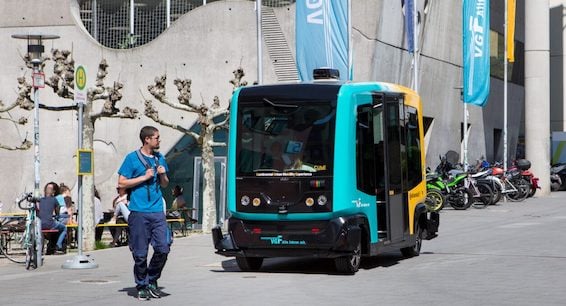IoT Research
How will the Internet of Things (IoT) evolve to serve the Coordination Age?
February 2023
Transport and logistics: The role of private 4G/5G
The transportation and logistics sector is one of the most promising industries for private LTE and 5G networks, as well as adjacent technologies such as edge computing and new Wi-Fi6E/7 versions. Although it offers opportunities for MNOs, some instances are challenging to address. Where can MNOs best meet enterprise needs?
December 2022
Should telcos dive deeper into energy?
The rapid rise in energy prices mean consumers and businesses are now much more conscious of how much power they are using and what it is costing them. As energy moves up everyone’s agenda, some telcos are pushing deep into the electricity market, investing in renewable power, storage and retail propositions.
December 2021
IoT security: The foundation for growth beyond connectivity
The rapidly growing pool of IoT data is creating an enormous and complex attack surface that is a significant vulnerability for enterprises and the wider economy. How can telcos address the need for more sophisticated security and position themselves as trusted partners to enterprises?
December 2021
Edge computing market sizing forecast
Edge computing: the US$500 billion opportunity, modelling total edge computing addressable revenue 2020–2030.
October 2021
How telcos can make the world a safer place
With the rollout of 5G, the telecoms industry could coordinate the development of early warning systems to mitigate the impact of pollution, wildfires, floods, infectious diseases and other threats.
August 2021
How telcos can provide a tonic for transport
As public transport systems try to recover from the pandemic, 5G could help them to become more versatile, cost-effective and appealing. By providing reliable and flexible connectivity to transport operators and their customers, telcos could create considerable value for both individuals and society.
August 2021
Airports: The roles of 5G & private networks
Airports are complex, multi-sector, multi-application, multi-stakeholder sites. They hold opportunities for both public & private 5G networks, although telcos need to choose their roles carefully.
August 2021
Innovation leader case study: Telefonica Tech AI of Things
We spoke to Telefónica about its 10 year experience of building a data monetisation business (previously called LUCA). This deep dive into its strategy, organisational structure and the products developed highlights what it takes to succeed in this challenging market.
June 2021
Why the consumer IoT is stuck in the slow lane
For uptake of Massive IoT connectivity to meet expectations in the B2C and B2B2C markets, telcos will need to dramatically improve coverage and simplify their propositions.
May 2021
A3 for enterprise: Where should telcos focus?
As analytics, AI and automation (A3) technologies mature, we explore nine potential A3 capabilities telcos could offer to their enterprise customers. We identify the sweet spots for telcos by assessing the importance of each of the nine capabilities across 14 industry verticals and mapping them against telcos’ existing levels of expertise.
March 2021
The $300bn COVID digital health dividend
Our detailed analytical model of 217 digital healthcare markets shows that the COVID pandemic has accelerated the global market four years ahead of its prior trajectory. This means that telcos and others seeking to support this welcome acceleration, and thereby grow valuable new businesses, should boost their plans now.
February 2021
eSIM: How to break through the barriers?
Although eSIM technology delivers seamless provisioning and greater flexibility and security – all of which are key to scaling the IoT – adoption has been slow. What should operators do to catalyse a shift towards eSIM in the 5G era?
October 2020
How 5G can cut 1.7 billion tonnes of CO2 emissions by 2030
Based on extensive industry interviews and detailed modelling, 5G-enabled use cases can reduce carbon emissions in the energy industry by almost 1% by 2030. How – and what – should telcos, the energy sector and governments do to achieve this?
September 2020
5G’s impact on transport and logistics: $280bn of benefits in 2030.
5G connectivity can make travelling by road faster and more efficient. This can drive productivity around the world and help the struggling transport and logistics industry to overcome its challenges.
July 2020
Reliance Unlimit: How to build a successful IoT ecosystem
Reliance’s standalone IoT business Unlimit exhibits much of what it takes to be a successful ecosystem play, although it’s too early to signal it a full-grown success. How has it achieved this, what’s to come, and what should others learn?
April 2020
Coordinating the care of the elderly
Telcos are well placed to enable the healthcare sector to meet the rising demand for secure and reliable in-home monitoring and treatment for the elderly and infirm.
January 2020
A new role for telcos in smart cities
A successful smart city strategy is crucial in enabling cities to manage rising populations and compete for investment and talent at a national and global level. The challenge is getting the complex ecosystem of players and partners to work well. How can telcos position themselves as strategic partners in this transition, and help enable successful collaborative innovation?
October 2019
5G’s impact on manufacturing: $740Bn of benefits in 2030
The unique benefits of 5G could unlock $740bn of value in manufacturing in 2030. This is based on models generated from 100+ interviews and surveys with senior manufacturing industry executives. What steps should operators, manufacturers and others take to achieve these benefits?
October 2019
The Industrial IoT: What’s the telco opportunity?
An overview of the Industrial Internet of Things (IIoT), taking a buyers’ eye view of current offerings, identifying issues and potential opportunities for telcos and others.
August 2019
Digital twins: A catalyst of disruption in the Coordination Age
An introduction to digital twins, an approach to managing assets that is gaining increasing traction across many business sectors, and that will ultimately disrupt many industry business models.
April 2019
Telcos and enterprise verticals: 5G is not the only opportunity
Telcos are looking towards the enterprise market to make the business case for 5G. But for most industries, 5G is just one of many technologies needed to drive efficiency and innovation. Which verticals’ needs best match telcos’ capabilities?
March 2019
Elisa Smart Factory: How to win over industry leaders in just two years
The origins and path of the innovative Finnish operator’s successful new proposition for the manufacturing industry in the Coordination Age.
May 2019
The IoT is dead: Long live the I4T – the Internet for Things
It’s hard to make things work in the IoT – it’s anything but plug and play. This report outlines why, what is needed, and current leading-edge efforts to achieve it. To deliver the benefits of the Coordination Age, all manner of “things” will need to be able to discover each other and communicate more autonomously. For this to happen easily and securely a new enabler is needed: the Internet for Things (I4T).
December 2017
IoT and blockchain: There’s substance behind the hype
There is a lot of market speculation about blockchain and its use-cases, especially in the area of IoT. This report outlines five use-cases for blockchain in IoT security and interoperability, and identifies how blockchain can enable new IoT business models for telcos.
November 2017
LPWA: Which way to go for IoT?
The LPWA market is highly fragmented, and telcos need to decide now which LPWA technologies to provide as part of their IoT portfolio. This report examines different LPWA technologies and use-cases, providing analysis to help telcos choose which ones are right for them.
February 2018
Indoor wireless: A new frontier for IoT and 5G
Indoor wireless coverage is essential to many IoT and 5G use-cases, but it’s also horribly difficult to achieve. With new entrants and changing user demands the power dynamics are shifting, and operators need to make strategic decisions now to avoid losing their stake in this market.
November 2017
Monetising IoT: Four steps for success
Most telcos have now accepted that they need to offer more than connectivity if they want to move up the IoT value chain. This report presents a four-step framework to help telcos define a successful IoT strategy.
May 2017
The IoT money problem: 3 options
We outline three potential roles for telcos in the IoT, describing twelve potential application areas and forty use cases, as well as the structure and trends driving change. Looking beyond this we ask which market areas are most attractive, and what should telcos do within them?
May 2017
Consumer IoT: How telcos can create new value
The Consumer Internet of Things (IoT) market could be huge, but hasn’t yet taken off. We look at why, analysing leading telcos’ and others strategies to date (including DTAG, Orange, and Telefonica), and outline a strategy for how telcos could play a major role by solving some of the key problems.
March 2016
MWC 2016: IoT & Enterprise
What was hot at MWC? We round up the action around enterprise IT and the Internet of Things.
January 2016
Connectivity for telco IoT / M2M: Are LPWAN & WiFi strategically important?
It’s reasonably clear that standard cellular networks will only carry a fraction of the data of the Internet of Things (IoT), but how should telcos be involved in the fast growing range of low cost, disruptive networks that will carry the bulk? We examine the alternatives and outline strategic options.
October 2016
The IoT ecosystem and four leading operators’ strategies
This report provides detailed analysis of the IoT ecosystem, the technologies enabling it, and how telcos can establish themselves within it, by presenting case-studies of strategies from AT&T, Vodafone, SK Telecom, and Deutsche Telekom. The report also discusses the connectivity needs of several different IoT use-cases.































